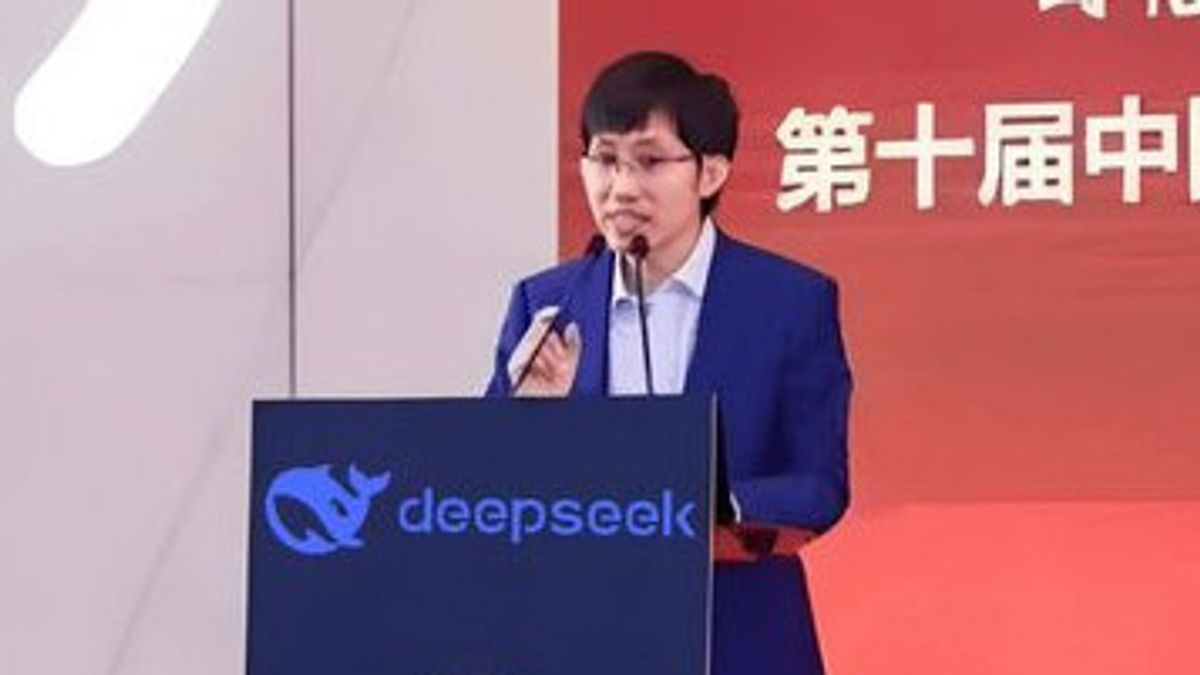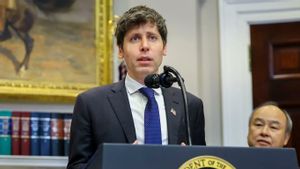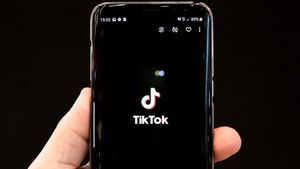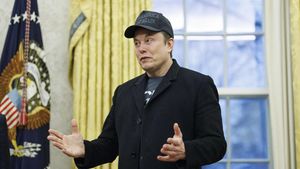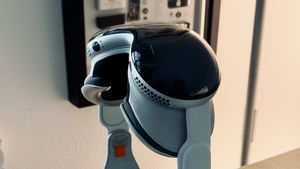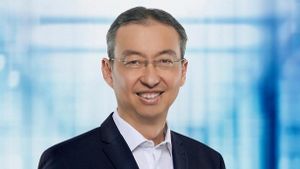JAKARTA Liang Wenfeng, founder of China's artificial intelligence (AI) startup DeepSek, has been in the spotlight in a short time as the new face of China's technology industry. Amid the increasingly stringent export control pressure from the United States, the 39-year-old emerged as a symbol of new hope for China to rival global technology domination.
Liang, formerly known as a very closed figure, began to attract public attention on January 20. He became one of nine selected individuals invited to give a speech at a closed cemetery led by Chinese Prime Minister, Li Qiang.
His appearance, much younger than academics and other senior officials, shows DeepSek's important role in China's efforts to build dominance in the AI sector, as featured in photos and videos released by CCTV.
DeepSek, which just launched a free AI assistant last week, claims the technology requires less data and much lower costs than today's AI service. The launch even triggered a major drop in global technology stocks.
Different Approach
Under Liang's leadership, DeepSee takes a unique approach that is different from other Chinese technology companies. While many companies are more focused on commercial applications, DeepSek chooses to allocate resources and research talent to develop the latest AI model.
"AI China cannot continue to be in a position as a follower. We often say that there is a one or two year gap between AI China and the United States, but the real gap is the difference between originality and imitation," Liang said in an interview with the Waves media in July last year.
This approach contradicts traditional business models in China, where innovations from abroad are usually adopted, modified, and then expanded rapidly. Liang believes that China's tech industry has reached an important crossroads, where confidence to make fundamental breakthroughs in research and development (R&D) is an urgent need.
One of DeepSeek's big decisions is to make the entire model open-source, in contrast to OpenAI's closed approach. In the open-source model, the basic code is publicly available so that other developers can use it and modify it as needed.
"Open-source is more like a cultural practice than a business practice. A company that does this will have soft power," Liang said. He also added that although OpenAI is closed, it cannot stop other parties from catching up.
BACA JUGA:
Liang Wenfeng Background
Liang was born in Guangdong province, which in the 1980s and 1990s became the center for the implementation of market capitalism in China. Unlike the surrounding environment which tends to prioritize business, Liang shows great interest in the academic world.
He was accepted to the prestigious University of Zhejiang at the age of 17, majoring in Electronics and Communications Engineering. After that, he continued his master's program in the field of Information and Communication Engineering, which he completed in 2010.
In 2015, Liang founded a quantitative hedge fund that uses complex mathematical algorithms for stock trading. The company's managed funds reached more than 100 billion yuan (around Rp210 trillion) by the end of 2021. However, in April 2023, the hedge fund announced a change in direction to focus on exploring general artificial intelligence (AGI).
A month later, DeepSek was founded. With the great goal of developing AGI, DeepSek is now the main attraction for graduates and doctoral students from leading universities in China. Liang believes that DeepSek's great mission to solve the most complex AI challenges in the world is the main magnet for the best talent.
"What attracts the best talent is of course solving the most difficult problems in the world," he said. "Our goal remains towards AGI."
Amid geopolitical pressure and intense competition in the global technology industry, Liang and DeepSek's move provides new hope for the future of technological innovation in China. With a focus on originality, open-source, and a major goal towards AGI, DeepSek may be a catalyst for major changes in the global AI landscape.
The English, Chinese, Japanese, Arabic, and French versions are automatically generated by the AI. So there may still be inaccuracies in translating, please always see Indonesian as our main language. (system supported by DigitalSiber.id)
